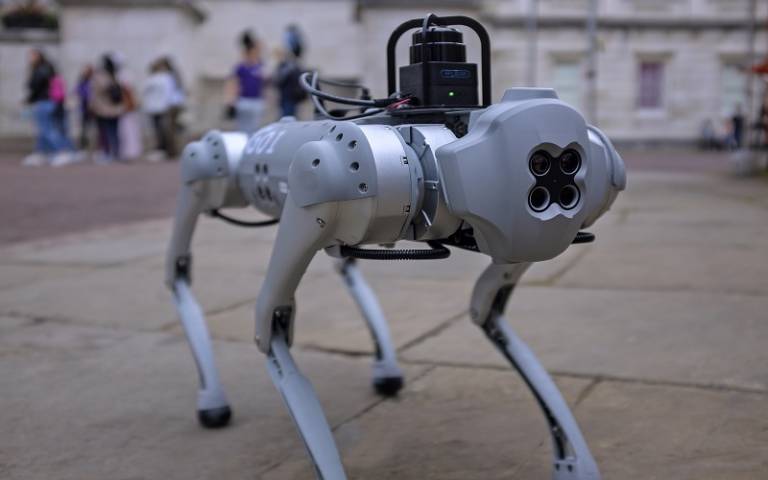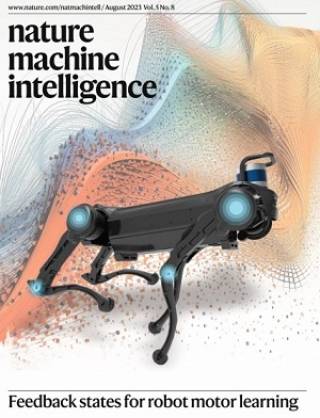Breakthrough UCL study reveals the secrets to faster, smarter robots
19 September 2023
In a ground-breaking study led by Dr Alex Li at UCL Computer Science, a team of scientists from the UK and Switzerland has unveiled the key to effective motor learning in robots.

Their paper, published in Nature Machine Intelligence, examines robot locomotion and sensory feedback, identifying the specific information robots really need in order to learn how to walk and run effectively.
Traditionally, teaching robots intricate movements has been a challenge due to the overwhelming amount of data required. However, this new study pinpoints the specific information necessary for robots to master motor skills, paving the way for faster and smarter robot learning.
The research’s core innovation used deep reinforcement learning (DRL) to systematically evaluate the importance of various sensory feedback signals for motor skill acquisition.
By concentrating on fundamental feedback, the team empowered a simulated quadruped robot to master various complex locomotion skills. Astonishingly, this robot, armed only with pivotal sensory feedback, rivalled the performance of its counterparts equipped with extensive sensory data. This groundbreaking revelation challenges conventional wisdom and opens new possibilities for future robot motor learning.

This discovery stands to accelerate AI research, streamlining the process of learning motion skills for robots by providing them with precisely the right amount of information. This underpins a wide range of real-world applications, and applies to legged robots like quadrupeds and humanoids, as well as other autonomous systems. From industrial robots in manufacturing plants to medical robots in surgeries, optimising sensory input can make robots more efficient, cost-effective, and capable of undertaking new tasks and adapt to changing environments.
Lead Researcher, Dr Alex Li, said: “As we unveil the mysteries of robot learning, our research sheds light on the fundamental building blocks of machine learning for robots. Our work helps robots acquire vital skills with minimal sensory input.
Additionally, we provide biologists with a computational tool to study crucial states in simulated animals when ethical constraints prevent the study of real animals. Truly, this work is transforming our understanding of sensorimotor learning in both robotics and biology.”
 Close
Close

